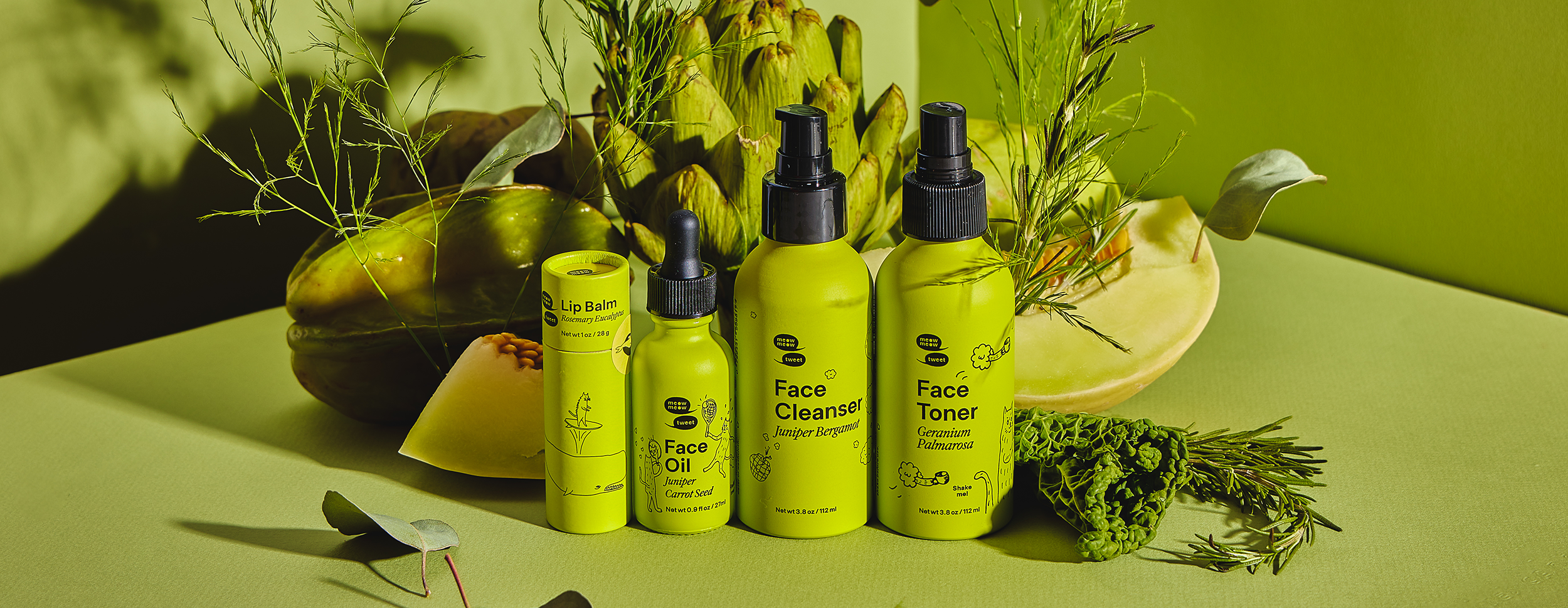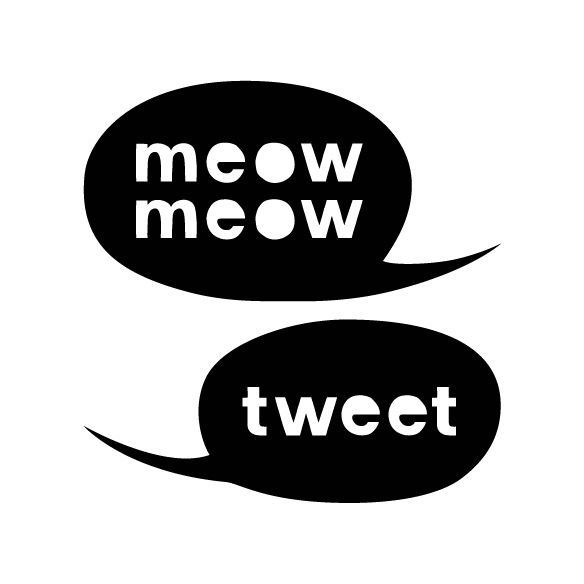



Meow Meow Tweet LLC

California, United States
September 2021
Personal care products
Manufacturing
United States
Founded in 2009 by Jeff Kurosaki and Tara Pelletier, Meow Meow Tweet is an AAPI, LGBTQIA led company. As the first brand to introduce 100% backyard compostable deodorant sticks and lip balms, their skincare, body care, and deodorants are always Leaping Bunny Certified and palm-oil free, designed to minimize plastic consumption; and offered at an accessible price point. Packaging focuses on two key ideas: (1) materials that break down naturally, and (2) the creation of circular systems of reuse that eliminate waste entirely. Meow Meow Tweet is also a certified Plastic Negative and Climate Neutral company. Meow Meow Tweet takes a slow food approach to skin care. All formulations are artfully blended by a certified aromatherapist and herbalist. Ingredients are certified organic, non-GMO, from strong or renewable plant populations and avoid materials that harm the ecosystems of animals and people. Products are made in small batches, by hand, in their California microfactory. The company redistributes funds to causes in the categories of Social Justice, Animal Justice, and Nature.
Overall B Impact Score
Governance 14.7
Governance evaluates a company's overall mission, engagement around its social/environmental impact, ethics, and transparency. This section also evaluates the ability of a company to protect their mission and formally consider stakeholders in decision making through their corporate structure (e.g. benefit corporation) or corporate governing documents.
What is this? A company with an Impact Business Model is intentionally designed to create a specific positive outcome for one of its stakeholders - such as workers, community, environment, or customers.
Governance 14.7
Governance evaluates a company's overall mission, engagement around its social/environmental impact, ethics, and transparency. This section also evaluates the ability of a company to protect their mission and formally consider stakeholders in decision making through their corporate structure (e.g. benefit corporation) or corporate governing documents.
What is this? A company with an Impact Business Model is intentionally designed to create a specific positive outcome for one of its stakeholders - such as workers, community, environment, or customers.
Workers 14.5
Workers evaluates a company’s contributions to its employees’ financial security, health & safety, wellness, career development, and engagement & satisfaction. In addition, this section recognizes business models designed to benefit workers, such as companies that are at least 40% owned by non-executive employees and those that have workforce development programs to support individuals with barriers to employment.
Community 20.0
Community evaluates a company’s engagement with and impact on the communities in which it operates, hires from, and sources from. Topics include diversity, equity & inclusion, economic impact, civic engagement, charitable giving, and supply chain management. In addition, this section recognizes business models that are designed to address specific community-oriented problems, such as poverty alleviation through fair trade sourcing or distribution via microenterprises, producer cooperative models, locally focused economic development, and formal charitable giving commitments.
Environment 38.3
Environment evaluates a company’s overall environmental management practices as well as its impact on the air, climate, water, land, and biodiversity. This includes the direct impact of a company’s operations and, when applicable its supply chain and distribution channels. This section also recognizes companies with environmentally innovative production processes and those that sell products or services that have a positive environmental impact. Some examples might include products and services that create renewable energy, reduce consumption or waste, conserve land or wildlife, provide less toxic alternatives to the market, or educate people about environmental problems.
What is this? A company with an Impact Business Model is intentionally designed to create a specific positive outcome for one of its stakeholders - such as workers, community, environment, or customers.
Customers 4.5
Customers evaluates a company’s stewardship of its customers through the quality of its products and services, ethical marketing, data privacy and security, and feedback channels. In addition, this section recognizes products or services that are designed to address a particular social problem for or through its customers, such as health or educational products, arts & media products, serving underserved customers/clients, and services that improve the social impact of other businesses or organizations.